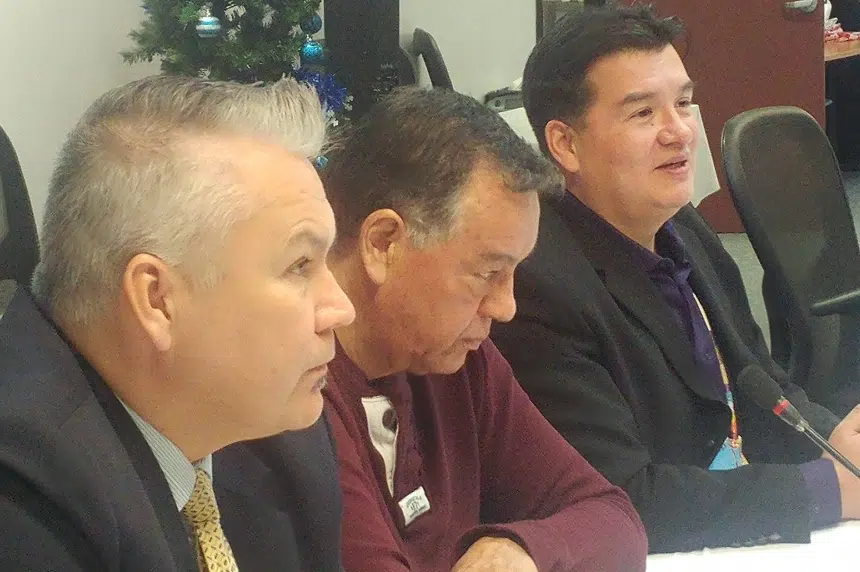Beardy’s and Okemasis First Nation in northern Saskatchewan has been awarded $4.5 million after a 17-year fight for compensation stemming from the 1885 Riel Resistance.
The order for the federal government to pay the amount comes from the Specific Claims Tribunal after a ruling that the First Nation’s treaty rights were violated following the rebellion.
“It’s a great day for our members,” said Beardy’s and Okemasis Chief Rick Gamble. “It’s a victory for treaty rights.”
Following the unsuccessful 19th century rebellion, the government labeled 28 First Nations across the prairies, including Beady’s and Okemasis, as “rebel indians.” Annuities guaranteed through signed treaties were suspended between 1885 and 1888 for all members, including women and children who weren’t part of the resistance.
The case served as a test for other reserves affected by the events following the rebellion, and could lead to more settlements in the near future.
Chief Gamble said he hopes the government realizes they’ll lose related claims, and enter negotiations with the First Nations instead.
“They’re going to lose every time,” he said. “Why don’t you spend that money at a roundtable and fulfill those treaties?”
Thirteen other First Nations in Saskatchewan had their payments suspended between 1885 to 1888.
Legal Counsel Ron Maurice said now that they’ve established a mathematical formula to bring those lost revenues to current value, the claim process could be smoother.
“Those other claims are identical,” he said. “I would hope it could be done very quickly, literally within weeks.”
Maurice also pointed out that the aftermath of the Riel Resistance led to the unconstitutional “pass system” for indigenous members leaving the reserves, as well as residential schools. He noted the settlement announced Tuesday is just the beginning.
However, the Specific Claims Tribunal is only mandated to award compensation for “quantifiable” losses. Punitive damages related to post-rebellion government policies have to be addressed in separate courts.
Beardy’s and Okemasis First Nation plans to deposit the $4.5 million into a trust account that can be accessed to improve infrastructure, housing and services on the reserve.











